Climate variability and fisheries in the southeastern Pacific
DOI: https://doi.org/10.3856/vol40-issue3-fulltext-18
Abstract
The southeastern Pacific Ocean is one of the most productive areas of the planet due to its intense oceanic circulation dynamics, whose most important manifestation from the point of view and biological oceanography is the coastal upwelling. This manifestation generates a high primary and secondary production which support important fish stocks that are the basis of the fishing economy of the region. However in this region, variability is a common event that meets regulatory standards of macro-scale such as seasonal, inter-annual, periodical and secular as processes of short, medium, long and very long term. In this scenario appear as environmental factors or manifestations of variability, ENSO (El Niño Southern Oscillation), PDO (Pacific Decadal Oscillation) and PSV (Pacific Secular Variability) as the most conspicuous. Naturally, the temporality and variability factors affect the ecosystem and within it, the resources and its fisheries. These changes are referred to time, space, populations and fisheries. That is, the processes of population dynamics of marine resources, such as recruitment, growth, natural and fishing mortality, are being affected permanently, a different scalar intensities and frequencies. This situation would induce a response in the dynamic populations, which in turn produce states population against each of the moments or environmental scenarios prevailing. This paper presents an analysis of standard patterns and variability factors using environmental variables, biological and fisheries, and identifies scenarios that could explain changes in populations and its fisheries, facilitating the adoption of management measures for each environmental condition. This will allow planning of fisheries to prevent socio-economic and financial collapse, as well as maximize the benefits in different environmental moments.


